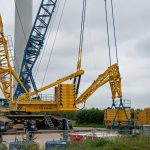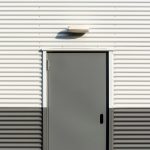Transitioning to commercial solar energy empowers businesses to cut operating costs while boosting sustainability. Customized solar solutions convert unused roof space into a long-term asset, reducing reliance on fluctuating grid prices. Beyond savings, solar installations strengthen corporate responsibility efforts and enhance brand reputation—making solar a strategic investment that delivers financial and environmental rewards year after year.
Commercial Solar Solutions for Businesses: Key Options, Installation Processes, and Immediate Benefits
With the expertise provided by Commercial Solar Energy Consultants, businesses can navigate a wide range of solar solutions tailored to their operational needs. This page explains it in detail: Commercial Solar Energy Consultants. The two most popular system types are photovoltaic (PV) panels—which harness sunlight to generate electricity—and integrated solutions pairing solar with battery storage or electric vehicle (EV) charging infrastructure. Facilities with expansive roof spaces, like warehouses or factories, find these systems especially beneficial.
Have you seen this : 5 Practical Tips for Improving Business Security
Installation processes follow a clear, step-by-step approach: site surveys, system design, equipment selection, and professional setup. Businesses can choose from funding models such as full ownership, Power Purchase Agreements (PPAs), or asset finance, balancing upfront costs with long-term savings. Transparent pricing tools and feasibility studies help estimate solar array size, expected savings, and financial impact before any investment is made.
Immediate benefits include significant reductions in energy expenses, long-term protection against rising electricity prices, and measurable decreases in carbon emissions. Adopting business solar power also strengthens corporate social responsibility efforts, enhancing reputation while supporting broader sustainability goals.
In parallel : Reduce expenses effectively using solar energy for businesses
System Designs, Costs, and Financing Options for Commercial Solar
Custom system design considerations and suitability for different industries and building types
A well-engineered commercial solar installation matches system size and panel placements to each building’s unique characteristics and business operations. For high energy users—such as warehouses, factories, and data centers—large, unobstructed roof spaces or adjacent land allow for greater solar capacity, meeting substantial demand and reducing long-term operational energy costs. Modular system designs enhance scalability, so businesses in sectors like retail, hospitality, agriculture, and manufacturing can expand generation if needs increase. The mounting approach—whether fixed, ballasted for flat roofs, or integrated onto ground arrays—aligns with structure type and available surface area.
Upfront costs versus long-term savings: ROI timelines and system lifespan
Commercial solar investments require upfront capital but yield rapid payback. Return on investment (ROI) periods are commonly 5–8 years, with system lifespans routinely reaching 25–30 years. After recouping costs, ongoing savings accrue, as solar power offsets energy purchased from the grid. Maintenance and cleaning costs are generally low, given panel durability and minimal servicing requirements.
Funding and financing models: Fully funded, PPAs, asset finance, incentives
Flexible financing allows companies to balance cash flow with long-term gains. Choices include full up-front ownership, asset financing, and Power Purchase Agreements (PPAs), minimizing initial expenses. Government grants, solar energy tax relief, and specialized subsidies further lower commercial solar panel cost, improving affordability and accessibility for businesses aiming for greater sustainability.
Choosing Providers and Ensuring Reliable Performance
Assessing Reputable Providers, Expertise, Case Studies, and Corporate Partnerships
Precision: Choose providers with extensive experience in commercial solar system installation and demonstrable expertise through completed case studies and high-profile partnerships. Reliable companies like Shawton Energy and AlphaGen Energy stand out through robust portfolios, cross-industry knowledge, and notable collaborations, such as strategic investments that enable large-scale deployment. Reviewing past project outcomes for varied sectors—manufacturing, warehousing, hospitality—helps ensure a provider’s capacity to customize and deliver on unique business requirements.
Technologies, Brands, and Efficiency Ratings: What Businesses Should Look For
Seek out high-efficiency commercial solar panels from recognized brands with a track record of durability and performance. Panels should offer strong efficiency ratings, ensuring maximum power generation per square meter, which is crucial for sites with limited roof space. Consider system scalability, integration of storage solutions, and compatibility with future energy management upgrades. Brands favored for business deployments often include those with proven module reliability across decades.
System Maintenance, Operational Support, Warranties, and Asset Management for Sustained Performance
Sustained system performance depends on low but regular solar panel maintenance and cleaning, proactive inspections, and responsive operational support. Effective warranties—often spanning 20–25 years—protect your investment, while asset management ensures timely issue detection and resolution. Providers offering 24/7 technical support, clear maintenance guidelines, and robust service contracts help businesses maintain optimal output and safeguard the long-term value of their investment.
Beyond Solar Panels: Integrated Solutions, Advanced Technologies, and Market Outlook
Complementary technologies: battery storage, EV charging infrastructure, solar carports, and hybrid systems
Precision in solar innovation starts with combining robust solar panel systems with commercial solar battery storage solutions. By capturing and storing excess energy, businesses can use power during peak times or after sunset, decreasing dependence on the grid and ensuring operational continuity. Pairing solar arrays with EV charging infrastructure caters to the shift toward electric vehicle fleets, making workplaces future-ready. Solar carports not only produce renewable electricity but also shield vehicles from the elements. For companies requiring continuous energy supply, hybrid commercial solar energy systems that blend solar, storage, and backup sources secure power availability when it matters most.
Environmental, regulatory, and broader business impacts
Solar energy storage for businesses helps achieve ambitious sustainability targets. Strategic deployment significantly reduces Scope 1 and 2 greenhouse gas emissions, moving firms closer to net zero. Compliance with evolving regulations becomes more straightforward. Moreover, shrinking a building’s carbon footprint boosts its appeal to eco-conscious partners, enhances CSR positioning, and fosters stronger client trust.
Current trends, scalability, and the growth of the commercial solar market
Commercial renewable energy solutions are expanding swiftly across sectors such as manufacturing, logistics, and hospitality. Advances in commercial solar energy storage technologies and falling costs drive adoption, while flexible financing—like fully funded options—enables scalability. The growing emphasis on performance guarantees and long-term ROI underscores the promise of commercial solar market growth.










